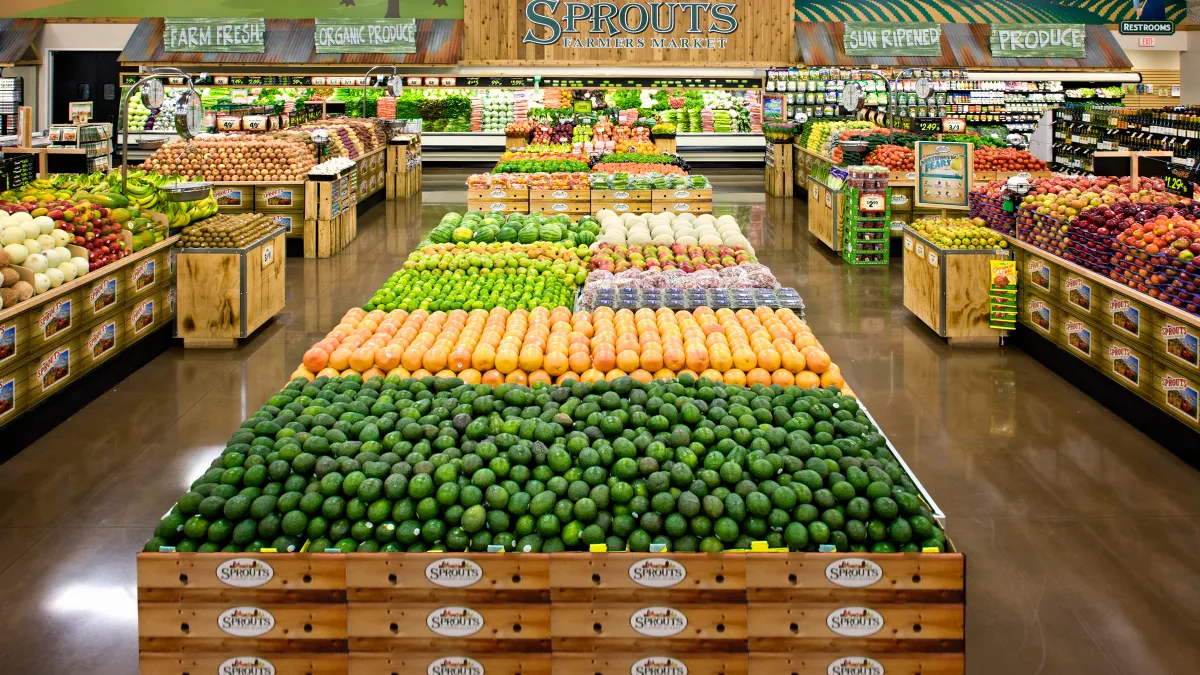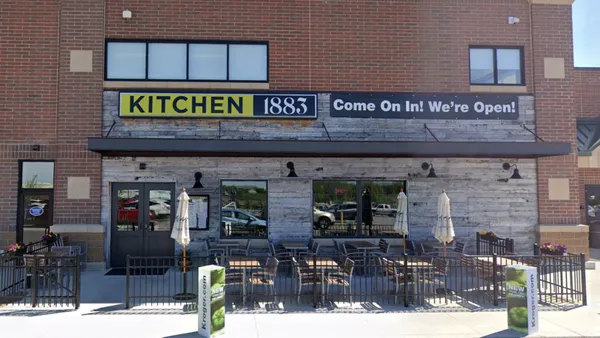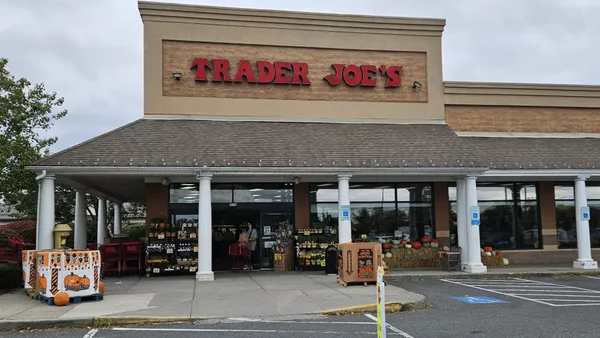Dive Brief:
- Sprouts Farmers Market reported net income of $1.3 billion for the second financial quarter ending July 1, a 12% increase over the same period last year. Earnings per share was 32 cents, a 10% increase over the year-ago period.
- Same-store sales increased 2%, a slowdown compared to previous quarters but in line with analysts’ estimates. The natural and organic chain projects sales to rise, with two-year comparable store sales growth projected at 3.4%.
- Sprouts announced in a press release emailed to Food Dive that it has created a new executive position: chief merchandising officer. The role will be filled by Dave McGlinchey, who joined Sprouts last year as president of merchandising services. McGlinchey has more than 20 years of industry experience, and previously held positions with Shaw’s and Star Market, as well as Stop & Shop/Giant Food.
Dive Insight:
Sprouts’ results this quarter fell in line with analysts’ projections, and it maintained its guidance for the full year across most metrics. The company did bump up its minimum projected earnings per share, from $1.22 to $1.24.
Comparable store sales, a key barometer of sales momentum, slowed for the second consecutive quarter. But analysts say this is mainly due to a lack of inflation in fresh foods, which are Sprouts’ specialty. The Bureau of Labor Statistics’ Consumer Price Index for proteins and vegetable prices fell in May and June.
Sprouts expects results to lift as inflation rises and as it continues to rapidly deploy new locations and in-store innovations. The company passed the 300-store mark during this most recent quarter and says it’s on track to open 30 locations this year. Sprouts has branched out to the East Coast, with new locations opening in South Carolina and Maryland recently, and executives maintain they see a pathway to 1,200 stores.
Perishables, and in particular produce, remain Sprouts’ calling card, and the company has developed a fresh item management system that will “improve our ability to have fresh items on the floor at all times while reducing shrink and out-of-stocks,” CEO Amin Maredia said during a conference call this morning.
Sprouts is also investing in prepared foods and new private label offerings across grocery and fresh categories. Store brand revenues increased more than 25%, Maredia noted, while sales of existing private label products are accelerating.
On the e-commerce front, Sprouts continues to roll out Instacart home delivery, with 190 stores now offering the service. The two companies struck a deal earlier this year, and in May the retailer ended its delivery relationship with Amazon and its Prime Now service, which is being rolled out across competing Whole Foods stores. Sprouts officials have said home delivery expands the reach of stores past the usual five-minute drive time and has boosted sales productivity.
Sprouts has big ambitions, but it’s operating in a crowded specialty field that now counts Amazon among the competition. In a recent interview with Food Dive, Maredia said his company isn't trying to go toe-to-toe with Amazon. Rather, it has its crosshairs trained on the thousands of traditional grocery stores that he characterized as out-of-touch, off-trend and operationally musclebound.
But the chain will continue to be measured against Whole Foods, its natural and organic competitor that’s seeing prices come down through Prime membership integrations driven by Amazon. According to reports, store traffic has increased around 3% since Amazon took over, with key spikes occurring recently during the Fourth of July holiday and Prime Day.
Also, those traditional grocers that Sprouts claims are so slow and out of touch are quickly evolving their specialty selections, particularly in private label. Kroger’s Simple Truth brand is now worth more than $2 billion while Albertsons’ O Organics line just surpassed $1 billion. To stay ahead, Sprouts will have to answer the Amazon/Whole Foods challenge while also staying a step or two ahead of conventional players.













